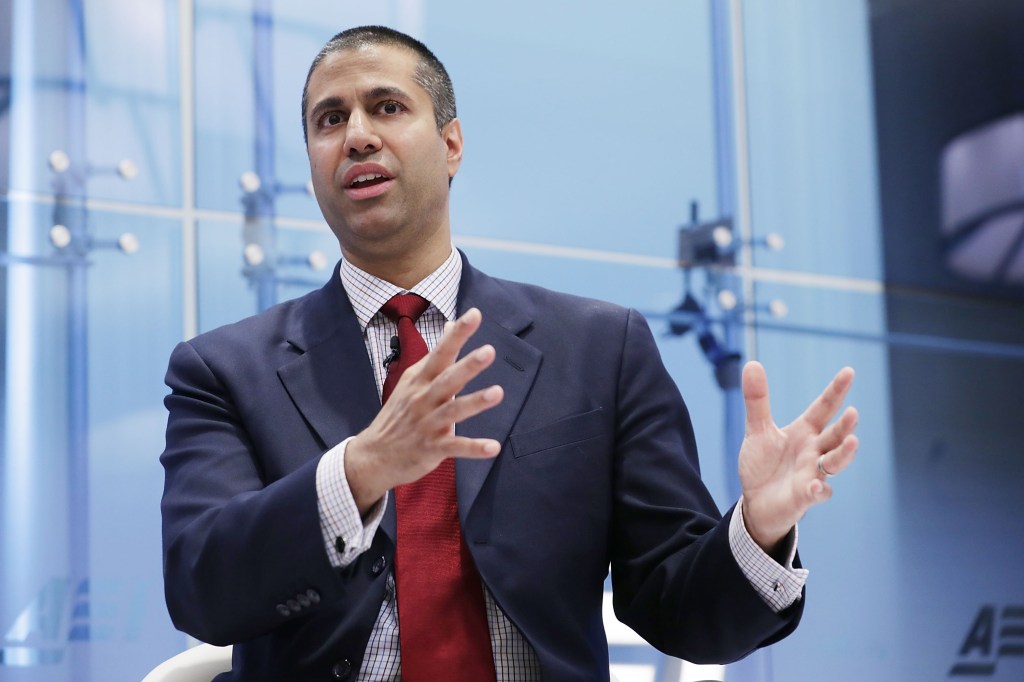Lost amid the furor over the Federal Communications Commission’s terrible, horrible, no good, very bad decision to reverse net neutrality requirements is another, equally awful decision that has slipped through the cracks.
In mid-November, the Commission decided to “re-think” it’s Lifeline program, which provides subsidies for broadband internet subscriptions to low-income Americans in cities and tribal regions around the country.
The proposed reforms could significantly reduce the amount of aid that’s offered through the program, which provided a $9.25 monthly subsidy for broadband subscriptions ($25 for subscribers on tribal lands). As the Brookings Institute notes, the Lifeline program was the only initiative specifically aimed at making broadband and phone access more affordable.
At a time when digital skills are an increasing necessity for success in education and the job market, cutting access for the Americans who are least likely to afford those services on their own seems like a singularly bad idea.
The new FCC rules would stymie the $2.25 billion annual program in three ways.
First, it could prevent re-sellers from offering subsidized subscription plans. Re-sellers are telecommunications companies who provide services but don’t own network infrastructure — they typically pick up the slack in areas where there’s little incentive for network providers to offer services. That decision, according to Brookings, has a special impact on people living on tribal lands who receive a $25 in extra subsidies through re-sellers.
The proposals from the FCC would also consider instituting a national spending cap on the subsidy. Finally, the FCC is considering revoking national approvals for Lifeline service providers that have already been qualified.
The rationale for Lifeline’s re-evaluation was the revelation of mismanagement at the program. Roughly $1.2 million of the program’s $2.5 billion in funding was being distributed to fake identities or to people who had died, according to an investigation by the General Accounting Office.
Under the new rules the FCC would definitely get rid of much of the waste associated with the program — primarily by doing away with everything that makes the program effective.
Originally launched by President Ronald Reagan as a way to provide phone services to low income households in the eighties, the program was expanded under the Obama Administration in 2016 to include broadband services as an acknowledgement of the centrality of the internet in modern American life (just as the phone was in the 80s).
While the majority of the FCC supports the changes to the Lifeline program, the changes aren’t embraced unanimously. Two weeks ago Democratic Commissioner Mignon Clyburn addressed the proposed changes to the program during a speech in South Carolina.
“Connecting the unconnected is no easy task. Costs of just a couple dollars a month can be insurmountable for families that struggle to put food on the table each day. But what the FCC majority proposed to do earlier this month, is to take away no-cost service offerings, and eliminate the business model of 70% of providers in the current market without specifying where existing consumers will go,” the Commissioner said. “I would be hard-pressed to identify a recent FCC action with a more pointed attack on the economically disadvantaged, than this one.”
Reducing the ability for low income households to access the internet is a terrible idea. It creates even more obstacles to a quality education for kids and limits the ability of adults to develop the skills they need to compete in the modern job market — or even apply for jobs in the modern era.
Again, the perspective from the Brookings Institute is helpful. According to their report, even though 93% of Americans have access to broadband services, penetration rates are actually far lower. Indeed, given their estimates that roughly 37% of households in low income neighborhoods have poor subscription rates for broadband services.

It may be that this problem of the subscription gap is even more acute, and more intractable than internet access. New technologies are increasingly making broadband access more available to remote locations. By contrast, service providers have little incentives to bring their services into communities that can’t afford to buy them.
“In short, the Lifeline Program is in trouble,” Commissioner Clyburn said in her remarks last month, “making it incumbent on those who care about affordable access to work with providers, partner with state and local authorities and let the FCC know how their communities will be impacted if 70 percent of those who currently provide service to those most in need are forced out of the market.”































Comment